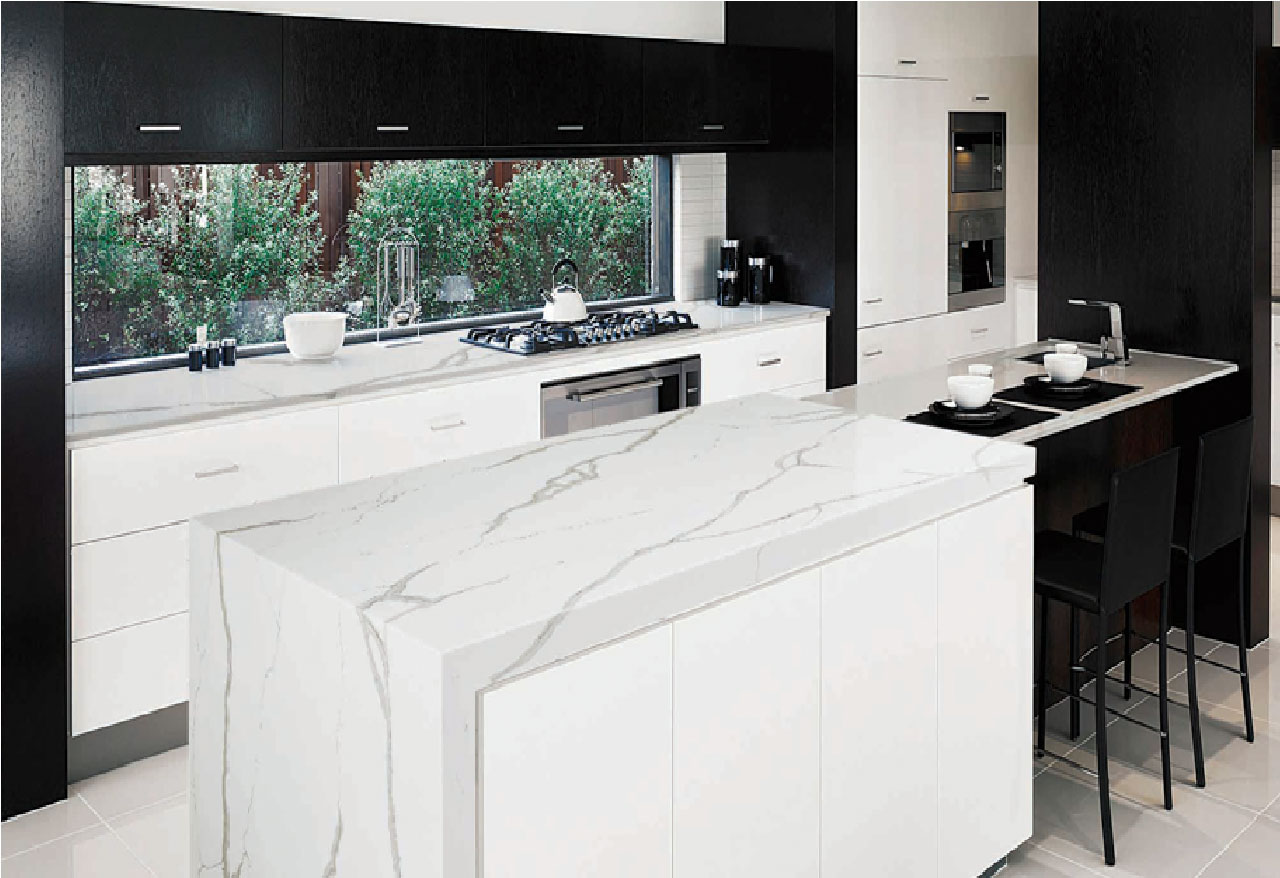When it comes to cleaning your kitchen counters, one method does not fit all. Discover how to clean countertops and keep them in top shape
Walk into any kitchen showroom and you’ll see an astounding number of countertop options. Marble, granite, soapstone, wood…each has its selling points—and its own cleaning and maintenance needs. That’s why it’s critical to know what you’re signing up for before you buy, says Gus Retsinas, formerly of the Manhattan Center for Kitchen and Bath. “Your countertop material must serve your design, but it must be practical, too.” To keep any surface looking good, you want to make sure you’re taking the proper precautions and preventing any scratching or intense heat exposure (sorry but your pets probably shouldn’t be climbing on your new marble countertop). Beyond buying a proper cutting board and steering clear of direct surface-to-heat contact, heed these expert tips on how to clean countertops based on the material you have in your kitchen.
How to Clean Marble and Granite Countertops
Tools:
- Water
- Dish soap
- Microfiber cloths
- Baking Soda
- Hydrogen Peroxide
- Plastic Wrap
- Tape
Cleaning:
Retsinas likes using a mix of warm water and mild dish soap for everyday cleaning, following up with a microfiber towel to shine up the stone. Avoid abrasive or acidic cleaners, which can strip the sealer and etch the stone.
Stain Removal:
For stains on granite or marble countertops, clean with a paste of baking soda and water (for oil-based stains) or hydrogen peroxide (for water-based stains). Apply the paste to the stain, cover with plastic wrap, and tape down the edges. Let sit for a few days (or overnight at the very least), and then rinse off the paste. Repeat the process if the stain isn’t completely gone. Be sure to do a spot test first to make sure the method won’t affect the color or finish of the stone.
Sealing:
These surfaces are popular for their tough-as-rocks durability, but they do need to be resealed regularly to protect them from stains. Reseal granite once a year and marble every few months, suggests Lowes manager and materials expert Mike Pitts.
How to Clean Quartz or Engineered Stone Countertops
Tools:
- Dish soap
- Water
- Nonabrasive glass or surface cleaner
- Microfiber cloths
- Nonabrasive sponge
Cleaning:
Made from resin-bound quartz crystals, engineered stone re-creates the look of its natural counterparts without requiring the same maintenance. Like the others, these countertops can be washed with mild soap and water.
Stain Removal:
Quartz countertops are largely stain-resistant, but if you do come across a persistent mark that soap and water can’t handle, use a glass cleaner and a nonabrasive sponge.
Sealing:
Engineered stone countertops don’t need any resealing to stay in pristine condition, says Erika Egede-Nissen, director of brand marketing for Caesarstone.


